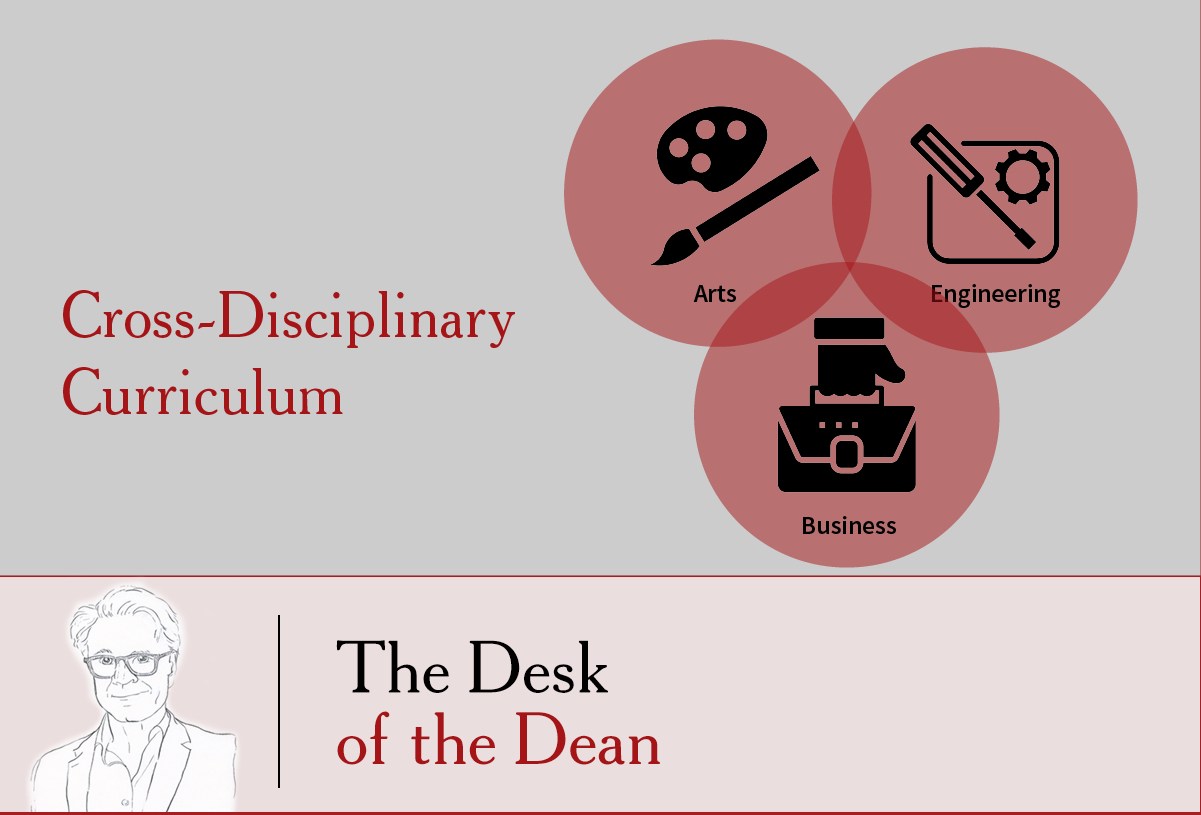Business acumen—regardless of your background
- November 7, 2018
- By Mark Taylor
- 3 minute read

It sounds like the setup for a bad joke: An artist, an engineer and an economist walk up to a bridge. Instead of delivering a punch line, however, I’ll take this scenario a different direction: Let’s talk about the non-traditional ways Olin has structured business education—some of them in direct response to students.
Consider the artist, whose eye focuses on the bridge’s aesthetic appeal. The engineer admires the integrity of a design that supports hundreds of tons of concrete, steel and people. The economist sees an investment that should yield returns by accelerating the transport of goods, services and labor.
Each has a unique perspective but each considers the other. All three want a sound, attractive, purposeful structure. In that vein, we recognize at Olin that every business student isn’t necessarily interested in a traditional business career. Even further still, every student seeking better business savvy is not destined for a business degree.
For example, we’ve reduced barriers for students approaching business courses from other disciplines, such as students from the Fox School who want to understand marketing better. These are typically rigorous, quantitative courses requiring advanced calculus as a prerequisite. While fully respecting the quantitative nature of our marketing curriculum, we’ve designed a “principles of marketing” course—without the deep quantitative background—for those who don’t need it.
Students themselves drove the introduction of our “business of social impact” minor, which only launched last year, combining faculty expertise from the Brown School and Olin. As BSBA curriculum director Bill Bottom told Student Life last year, “This is an initiative that began from student interest and student research—a group of students…really were quite enthusiastic about their business studies.”
That minor joins the minor in the business of sports, underway for several years, and the newly announced minor in the business of the arts, due to launch next year—along with a course in the economics of entertainment taught by Glenn MacDonald.
We’re even going deeper in the next year—beyond a few courses or a minor—with the introduction of WashU’s first truly joint degree within the university. In 2019, in collaboration with the School of Engineering and Applied Science, we’ll welcome our first students working toward a bachelor’s degree in business and computer science.
“We’ve worked for a year to put this together, and we’ve validated our thinking off of other alumni and corporate partners,” said Steve Malter, Olin’s senior associate dean of undergraduate programs. “This is what the workforce is looking for. This is the future.”
Steve made those comments in the new edition of Olin Business magazine, out now, which dives more deeply into cross-disciplinary business programs than I can here.
As an economist and scholar of renaissance literature myself, you must imagine that I’m a firm believer in interdisciplinary work, combining a broad general curriculum with business education. Real-world problems don’t come neatly packaged. We must look across academic siloes to solve the toughest problems. As leaders, we must be comfortable moving from the highly qualitative to the highly quantitative, using our skills of persuasion, backing our viewpoints with hard-core analysis.
It’s in this context that we speak at Olin about a values-based, data-driven education. That’s why I’m excited by the work Olin has done to reach across disciplines and attract non-traditional business students.
Media inquiries
For assistance with media inquiries and to find faculty experts, please contact Washington University Marketing & Communications.
Monday–Friday, 8:30 to 5 p.m.
Sara Savat
Senior News Director, Business and Social Sciences
